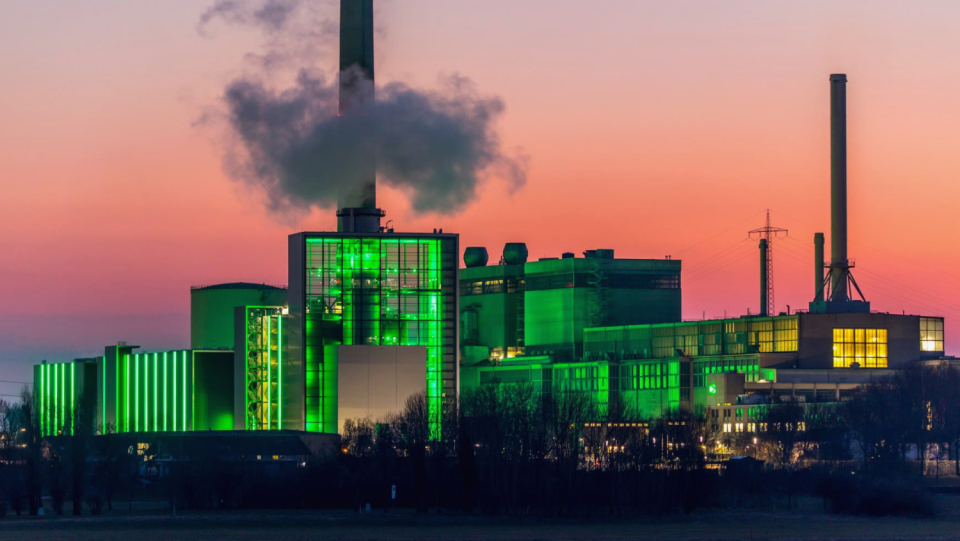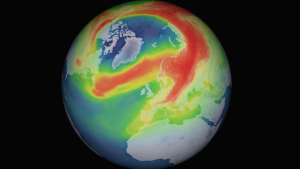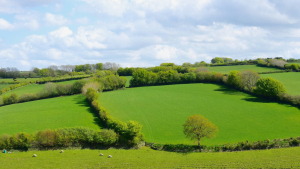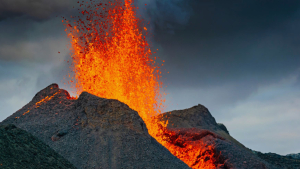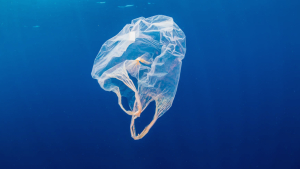The Irsching 4 power plant was a technical marvel of its time and then became a political and economic menetekel. When the plant on the Danube near Ingolstadt was connected to the grid in 2011, it was the first in the world to achieve an efficiency of 60 percent: From 100 kilowatt hours of thermal energy from the burned natural gas, the gas turbine and the coupled steam turbine as well as the generator generated slightly more than 60 kilowatt hours of electricity. At the time, this was almost 20 percentage points more than the average of German power plants that burned fossil raw materials.
But it quickly became apparent: the record power plant with its net performance of a good 560 megawatts could not be operated economically. Therefore, the owners made the application to shut down it. It was rejected that it had to be kept on readiness: In order to ensure network security, it should be exceeded from now on if the electricity requirement in southern Germany exceeded the offer of wind turbines, solar parks, coal and nuclear people.
With falling gas prices came the new turnaround. By 2020, the framework conditions had changed to such an extent that owners returned to the regular electricity market. Now the cost of natural gas is rising sharply again, but main operator Uniper says it wants to stick to its plan. After all, the revenues for electricity have also increased.
On the whole, however, it remains the case that the role of reservists is intended for state-of-the-art gas-fired power plants in the future. One of them is already under construction in the same industrial park on the Danube: Irsching 6. Dozens more plants are still to be built, which can then together provide at least 15 gigawatts, according to the estimate of the government-related German Energy Agency. You will spend most of the year waiting – for your assignment in exceptional situations.
In the midst of the chilly, black gloom
Gas-fired power plants can supply electricity at the push of a button. This is important if things get tight in the more complex network, especially after 2030 and after the coal phase-out. According to the current plans, the German electricity supply will then be based on a massively expanded power plant park for wind and solar energy. "As an industrialized country that needs 100 percent secure electricity, we have to prepare for phases of cold dark doldrums," says Matthias Buck of the Berlin-based think tank Agora Energiewende. Experience alone shows that sometimes there is hardly any wind blowing for days and daylight is missing. "For this, we have to maintain the capacity of the controllable power plants."
Politics has also recognized this. We "need the rapid expansion of secured power through the construction of modern gas-fired power plants. These make a significant contribution to ensuring security of supply in the course of the coal phase-out," says the opening balance sheet on climate protection, which the new Minister of Economic Affairs, Robert Habeck (Greens), presented in January 2022. And the coalition agreement of the traffic light government already states: "Natural gas is indispensable for a transitional period.«
Therefore, in Germany one could actually be happy about some particularly controversial passages of a set of rules that the EU Commission prepared and sent to the member states on New Year's Eve 2021: the so-called "EU taxonomy for sustainable environmentally friendly economic activities". Their purpose is to list all those energy systems that serve the European climate goals. This should improve the financing and result in a seal of approval for investors in the next step. The member states have time to take a position by January 21, after which the regulation will be transferred to applicable law.
The new EU taxonomy is controversial because not only photovoltaics or wind power are given the green label, but also natural gas and nuclear power. The latter has triggered a lot of harsh and uncompromising criticism, especially in Germany – especially from the governing party The Greens. The former, on the other hand, less so. Not surprisingly, the grand coalition under Angela Merkel, in which the current chancellor Olaf Scholz (SPD) was finance minister and vice chancellor, had already campaigned for it in Brussels.
More than 300,000 people sign a petition.
Criticism of the inclusion of the fossil fuels is more aloud from outside the traffic light coalition. For example, Matthias Buck says: »Fossile gas is not green, point. But a contribution to climate change. «Fundamental opposition came from an alliance of environmental groups such as Greenpeace and the federal government: They organized a petition and quickly had far more than 300,000 signatures. According to the accusation, the taxonomy should counteract the Greenwashing to present investments as a green that is not at all, and now dismantle Greenwashing for natural gas and nuclear power. "Even though climate -damaging and high -risk energy sources are considered sustainable, the entire label is devalued - that would have a fatal international signal effect."
Other observers of the energy market cannot see anything fatal in this. Especially since, according to the draft, the sustainability label should only be awarded to a power plant if it complies with strict framework conditions. These are intended to ensure that combustion is as low-emission as possible and is actually only used as a transitional technology. At least that's how the EU wants its rules to be understood.
For example, the Association of Municipal Enterprises, VKU, to which many municipal utilities belong, has a rather positive opinion. In a statement, he basically welcomes the proposal to "recognize natural gas as a sustainable transition technology in the sense of taxonomy". It is an important signal that the fuel is in line with the European climate goals, because it paves the way for the transition to truly green energy.
Two difficult paths lead to the green label
However, the organization is struggling with the details of the EU proposal. The restrictions are "so narrow that they create unnecessarily high and climate-politically unreasonable hurdles for financing". What these are can be found in the confidential draft, which was leaked by the news portal Euractiv, for example. Accordingly, there are two paths for gas-fired power plants, one steep and one stony.
The steep path: systems may only cause emissions of less than 100 grams of CO2 per kilowatt hour of electricity, and all losses in promotion and transport as well as exhaust gases are included in the company. This is not possible with today's technology, less than 350 grams are difficult, say experts. Perhaps you come with the CCS technology, in which the CO2 is filtered from the exhaust gases and stored underground, reliably below 100 grams. or hydrogen that has been obtained with the help of green electricity. Such replacement fuels are called "climate -neutral gases".
The rocky road: The plants must be approved by 2030 and, as part of a government phase-out program, replace climate-damaging power plants that burn solid or liquid fuels, i.e. coal or oil. Greenhouse gas emissions must be reduced by at least 55 percent, while at the same time it must be demonstrably impossible to transfer the same task to a renewable energy source.
In addition, the power plants will have to burn at least 30 percent of climate-neutral gases as early as 2026. the rate will rise to 55 percent in 2030 and to 100 percent in 2036. And here, too, there are rules for the emission of carbon dioxide. Either the system permanently emits less than 270 grams per kilowatt hour of electrical energy, or it must observe a limit value on average over 20 years, which depends on the installed electrical power. Even for very efficient systems, this alone means that they do not supply much more than 1500 to 2000 of the 8760 hours of electricity a year.
Critics claim that few gas power plants can meet the requirements.
These figures ignite the detailed criticism of the VKU experts. In a statement, the Association of Public Utilities complains about the "unattainable quotas of climate-neutral gases". On the other hand, he had wished for higher limit values. In addition, according to the VKU, those plants that generate electricity and district heating and are therefore practically in continuous operation at least during the heating season would be worse off. Many cities need exactly such facilities, but they cannot meet the requirements of the taxonomy, either in terms of emissions or by exploiting the 20-year average rule, which is not intended for them. The lobby organization therefore demands that the state directly subsidizes the power plants, which are then not built according to the conditions of the EU taxonomy.
Criticism of the framework conditions also comes from science, but the regulations here do not go far enough for many. It is simply impossible to convey, says Matthias Buck from Agora Energiewende, that a gas-fired power plant approved in 2030 will continue to release 270 grams of CO2 for every kilowatt hour. "In order to comply with such emission limits for fossil gas power plants, which are absolutely incompatible with our climate protection goals, there is a single hard guardrail in the taxonomy. This is the prescribed timetable for the fuel change." Habeck's ministry confirmed the goal of a climate-neutral power supply in Germany from 2035 only last week.
Gunnar Luderer from the Potsdam Institute for Climate Impact Research also has concerns in view of the requirements, especially when it comes to the average regulation: »It will be very challenging that a system that has been on the net for ten years and has emitted too much for ten years. After that, less for ten years to keep the mean. It would have been better regulated over a significantly higher price for CO2 emissions. "
Unwanted side effects pose a concern.
In addition, the determination in the taxonomy to designate gas-fired power plants as sustainable could have undesirable side effects in other political decisions, experts fear. "You have to justify national subsidies well in the EU – the taxonomy could provide such justifications," Luderer suspects. "Perhaps this can also justify the claim to get more money from the Community's Corona relief Fund, which, as a European Green Deal, is supposed to promote the sustainable restructuring of the economy.«
However, the question remains open whether the taxonomy fulfills its actual purpose. After all, it is to create clarity in the event of sustainable investments and thus steer funds in the direction of the additional systems required - also towards the gas power plants in Germany. The first reactions from the financial industry are mostly negative. »The taxonomy was hijacked politically. The credibility of the regulation has lost massively, «explains the Deka, the investment bank of the Sparkassenverband, in a statement. "Slowing the actual goals, namely slowing down climate change and making the economy more sustainably, does not help."
Thomas Jorberg, spokesman of the board of the social-ecologically oriented GLS Bank, which according to its self-description sets "standards for responsible business and for social change", is also disappointed across the board: "With the inclusion of natural gas and nuclear power, the taxonomy completely misses its goal of protecting private and institutional investors from greenwashing."
There are sufficient donors even without a sustainability designation.
According to Jorberg, it was also "gross nonsense that funds could only be mobilized for gas power plants with the classification as" sustainable ". In contrast, the order of magnitude already speaks: »Less than ten percent of capital is currently flowing into green investments. Even if many people are looking for such opportunities: The majority of the investments are independent of ecological criteria. «
"You don't need the taxonomy for gas-fired power plants," says Magdalena Senn of the citizens' movement Finanzwende, which started the petition against the proposals from Brussels with several other organizations. There is a lot of money on the market, and when weighing risks and expected profits, "a possible sustainability seal is often only a small factor". The government must clarify, for example, whether something and how much is paid for power plants that must remain on standby. After all, it is obvious that investors of the future want to avoid a rollercoaster ride like Irsching 4.
Incidentally, it also seems to have been clear to the EU Commission that the new rules jeopardize the goal of the whole thing – more transparency in sustainable investments. According to the leaked draft, in the future every financial product must "clearly disclose the share of gas and nuclear energy activities," according to an addition to the taxonomy. Like the warning about peanuts on a biscuit package, but larger, there may be a note on financial products in the future: "Contains traces of natural gas and nuclear energy.«







